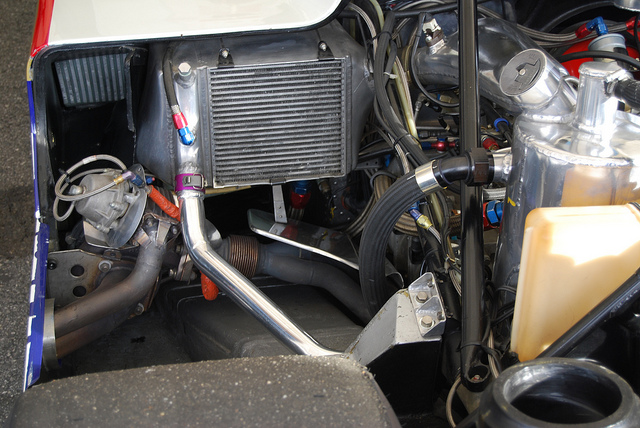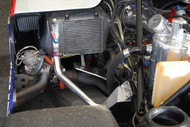Why is My Car Leaking Coolant?
19th Sep 2017

The cooling system is arguably one of the most important systems in a car. Consisting of liquid coolant (typically a 50/50 mix of water and antifreeze), a radiator, expansion tank, fan and connecting hoses, it's responsible for taking heat away from the engine. If the system runs out of coolant or becomes low on coolant, however, it won't be able to perform this job. So, why does cooling systems leak exactly?
Cracked Radiator
One common cause of coolant leaks is a cracked radiator. Typically found in the front of the engine bay, the radiator holds the coolant while releasing its heat through metal fins. If there's a crack in your radiator, coolant will escape. This is especially true when the engine reaches operational temperature, as the increased pressure can exploit otherwise small hairline cracks.
Faulty Radiator Cap
Another common cause of coolant leaks is a faulty radiator cap. Radiator caps are designed to hold a certain amount of pressure, with the excess pressure being released to the expansion reservoir. If the cap fails to hold pressure, coolant may escape through the top of the radiator or boil over when it reaches high temperatures.
Loose or Damaged Hose
Of course, a loose or damaged coolant hose may also cause coolant to leak. In most cars, there's a top hose running from the radiator to the engine as well as a bottom hose running from the engine to the radiator. If either of these hoses break or are otherwise compromised, coolant may leak.
Blown Head Gasket
Let's hope this isn't the case for your car, but a blown head gasket can cause coolant to leak. When the coolant passage is broken, the head gasket may either push exhaust gases into the cooling system or suck coolant into the cylinder and out the exhaust. In either of these cases, coolant will be lost; thus, increasing the chance of an overheated engine.
Radiator to Overflow Reservoir Line
Finally, if the line running from your car's radiator to overflow reservoir is compromised, coolant may "get stuck" in the reservoir. As your engine warms, coolant expands -- and this expanded coolant is pushed into the reservoir. When your engine cools, however, the coolant contracts, which should create a vacuum effect in your radiator to pull the coolant from the reservoir. If the line connecting these two components is compromised -- or the radiator cap's vacuum valve is broken -- your radiator may not fill after the engine has cooled.

